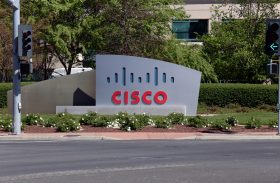Apstra Lands Yahoo Japan

Apstra, a startup focused on using intent-based networking (IBN) and intent-based analytics (IBA) to help automate the configuration and operation of large-scale networks, has announced its first customer -- Yahoo Japan.
Yahoo Japan, originally formed as a joint venture between the American Internet company Altaba and the Japanese company SoftBank, is not related to the U.S.-based Yahoo, which is owned by Verizon (VZ). Yahoo Japan is one of Japan's largest Internet operators and it will use the Apstra Operating System (AOS) to help manage a multi-vendor data center network.
Apstra CEO Mansour Karam says the Yahoo Japan network includes equipment from several vendors including traditional hardware vendors such as Cisco (CSCO), Arista (ANET), and Juniper Networks (JNPR) as well as open networking equipment from Cumulus Networks. Their goal was to tie the multi-vendor network together with IBN and IBA to automate the provisioning, maintenance, and expansion of networking components.
"When they were initially investigating they were looking at solutions from the hardware vendors themselves, but they decided that wasn’t going to cut it because they needed automation software that can work across vendors," said Karam in an interview last week. "In the past they had built it themselves, but they would have to clone their developers. They realized that we had the right architecture that scales to their environment. They decided to go with Apstra for their analytics and automation layer."
Karam said the software is in production now with an initial deployment of 500 nodes. Apstra is not disclosing the financials of the deal, but the company has a software licensing model based on each node of the deployment.
Apstra is betting that the so-called "webscale" approach of building data centers with a variety of hardware and then tying it together with custom software can be commercialized. This is made possible by the proliferation of applications programming interfaces (APIs) in networking hardware that allows network telemetry data to be collected and analyzed.
Yahoo Japan apparently agrees with the approach. The company said that the cost of hiring its own large team to deliver the automation was too high.
“After extensive research Yahoo! JAPAN chose the strategy and best practices of a large hyperscale company that had adopted a Clos fabric network to flexibly scale out their networking equipment to support our Hadoop infrastructure,” said Kenya Murakoshi, Senior Manager, Site Operations Division, System Management Group at Yahoo Japan Corporation, in a corporate release. “Apstra streamlines Yahoo! JAPAN’s network design, build and operations processes by abstracting the network configuration with a concept of intent, which was a new concept to us, but the benefits were clear. The Apstra intent-based analytics allow us to specify how we want our network to operate. We tell AOS what we want to happen vs. doing it ourselves. Apstra’s telemetry then provides deep insight into the state of our network and alerts us if there are risks like cabling or traffic imbalance issues that need to be addressed. Deployment of AOS at Yahoo! JAPAN went smoothly without major issues.”
Yahoo Japan is using the Apstra software in a Clos-based data center, which means it uses a multistage arrangement of switching equipment, in an architecture known as leaf-spine, to efficiently connect the computing nodes in the data center. One of the major applications includes 90 racks of networking switches for the many nodes of Hadoop clusters for processing data.
Apstra says one of the main benefits of the IBN approach of its AOS system is that it can reduce design and implementation times for network changes and expansions, from weeks or months to days. To deploy or connect a new server pod, engineers can click on a visual interface, and the network topology is automatically configured and connected, rather than requiring manual layouts. Analytics can then be used to manage the operation of the network to reduce downtime and simplify operations.
For those watching Apstra, the Yahoo Japan deal is an important landmark for this intriguing startup that had not yet named any customers. Apstra has plans to take its network automation model into other data centers and even large service providers, so it will be interesting to see who's next.















